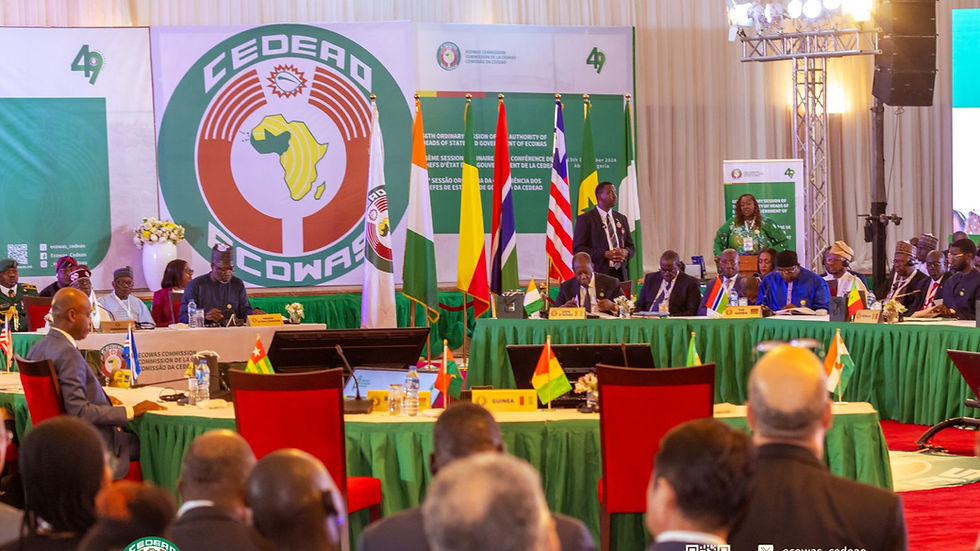West Africa Drug Policy Network to Scale Up its impact in the Region
- WADPN

- Apr 18, 2018
- 3 min read

One doesn’t often think of drug users as victims of decades of human rights violations, systematic discrimination and poor access to adequate treatment but that’s exactly what they have been in West Africa. This situation is the consequence of the enforcement of punitive drug policies across the region. The punitive approach in addition to causing significant harm to West Africans, has not reduced the scale of drug market in the region.
It is within this context that The West Africa Drug Policy Network (WADPN), a group of civil society organisations in West Africa, advocates for drug policy reform. The network has contributed to raising awareness on the harm being caused by the current oppressive drug policies in the region and engaged their respective national governments on evidence-based drug policy reform issues.
These engagements include the network’s active participation in advocacy activities including the International Day Against Drug Abuse and Illicit Trafficking[1]. The various country chapters actively participate in the Support Don’t Punish Campaign that calls for change in laws and policies that impede access to harm reduction interventions and to end the criminalisation of people who use drugs. In addition, the Network also contributed to the adoption of the West Africa Common position submitted to the UNGASS, calling for drug policy reform[2].
In 2017, the Network with support from WACSI and OSIWA organised radio/TV dialogues in Benin, Cote d’Ivoire, Ghana, Liberia and Sierra Leone to engage community citizens and government officials on approaching drug policy formulation, compliance and implementation from a human rights and public health perspective.
In Abidjan, the network also organised a multisectoral consultation for the Mano River region[3]. Representatives of government ministries and agencies, law enforcement agencies, civil society and drug policy experts from the Mano River Union[4] Region called for drug policies grounded on public health perspective to facilitate treatment, interventions and facilities for problematic drug users.
To amplify its impact in the region and enable a shift of position from West African governments that are still in favour of prohibitionist policies, the network with support from WACSI and OSIWA, organised a four-day network meeting and capacity building session in Accra.
The meeting attracted a total of 32 members from the 15 ECOWAS states as well as Mauritania.
The key objectives of the meeting were to:
§ Provide a platform for network members to contribute to strategies and tactics for strengthening operations, governance and programmes;
§ Develop an action plan, considering the network’s internal strengths, weaknesses and external opportunities and threats;
§ Build the capacity of network members on stakeholder engagement, networking and alliance building, resource mobilisation and documentation of human rights violations; and
§ Reflect on specific advocacy, education and awareness raising strategies that respond to the contextual realities of West African countries.
The meeting started with each WADPN Chapter giving an update on its work on the ground for drug policy reform. From the various presentations, it appeared that there has an explosion in drug consumption among the youth. Hard drugs such as heroin and cocaine are also being increasingly consumed. The abuse of pharmaceutical products such as tramadol is also becoming a growing threat in the region. Unfortunately, despite growing interest among law enforcement actors for a public health approach toward the drug scourge, the absence of legal framework constitutes a major obstacle.
A subsequent session was dedicated to a SWOT analysis of the Network. The SWOT presentation allowed network members to identify means to tackle weaknesses of the network while leveraging on it strengths. Specifically, the Network aims at increasing its influence by documenting rigorously, drug related human rights violations in the region. These facts will serve as foundational evidence to West African governments to re-orientate their drug policies.
Emphasis was put on the need for stronger synergy amongst network members in their activities. This involve having closer collaboration between activists working on treatment and care and those working on policy advocacy. A review of the Network’s regional strategic plan and a contextual breakdown of this strategic plan for each West African country was one of the key recommendations of the discussions.
Capacity building sessions on procedures to document human rights violations, resource mobilisation, grants management, networking and alliance building also enhanced the capacity of the participants and equipped them with the knowledge and tools to scale up their activities in their respective countries.
This meeting has significantly contributed not only to improving the efficiency and effectiveness of the Network but also constituted a significant step towards the Network’s greater impact in West Africa, re-imagining drug policies that address our drug challenge.
By Mouctar Diallo, Programme Assistant Capacity Development Unit and Chamrid Kpadonou, Project Coordinator Drug Policy at the West Africa Civil Society Institute (WACSI)
[1] 26 June of every year




Comments